
Samlande tankar participates in the MSA Nordic Conference 2024 “The Art of Conviviality – Memory Studies Association Nordic’s Third Annual Conference“, 24-25 of October at Malmö university.
The panel talk Communities Gathering: Rereading Pasts, Reimagining Futures is moderated and organized in collaboration between artist Johnny Chang, Macarena Dusant as part of Samlande tankar/Collecting Thoughts, and René León Rosales and his ongoing research at MKC regarding community archives. For the program, visit the conference’s webbpage here.
Communities Gathering: Rereading Pasts, Reimagining Futures
This session is a panel discussing community archiving, the politics of gathering, and its relationship with community work and cultural institutions.
In connection with the project Samlande tankar/Collecting Thoughts at Grafikens Hus and research conducted at Mångkulturellt centrum (MKC) in Fittja, the panel brings together Yahia Zaied, Jenny Diệu Thúy, Mamak Babak-Rad, and René León Rosales to unfold the urgencies but also challenges of organizing community archives. Gathering critical global majority perspectives in Sweden, the panel digs into the work of community archiving, collective memory and sustaining struggle and resilience through gathering practices.
Many diaspora, indigenous, global majority, and grassroots community perspectives and experiences that affect and transform society from below are rarely represented in official archives and museums. These conditions make it difficult to learn from our pasts, draw and build connections across generations and communities, and understand the broader conditions of specific community struggles.
Community archives often aim to address this absence, and emerge out of and are shaped by a community’s needs. For diaspora communities this often is motivated by a desire to document and reimagine cultural heritage generating new presents and futures through shared experiences and struggles. Community archives cares for these invisibilized stories, desedimenting and entangling microhistories to retell history, nourishing the potential for new senses of heritage and belonging. They have the capacity to challenge hegemonic narratives and ideologies of the nation state, troubling and dismantling myths of imagined communities while supporting different and emergent cultural practices and forms.
Participants:
Jenny Nguyen is an activist, human rights lawyer and writer based in Malmö. Her work centers around challenging current narratives of belonging(s) against the backdrop of a system of nation states and contemporary capitalism. She is especially interested in intergenerational trauma and collective ways of healing.
Yahia Saleh is a board member of Black Archives Sweden, as well as an activist, researcher, author, and social worker. His work explores the intersections of migration, forced displacement, memory, sexuality, and masculinity. With deep involvement in socio-political initiatives across Egypt and Sweden, Yahia is committed to advocating for Nubian cultural and land rights, while also championing the visibility and well-being of migrant and Black queer communities. His research is grounded in active community engagement, focusing on marginalized communities’ lived experiences. Saleh holds an MA in International Migration and Ethnic Relations from Malmö University, Sweden, where he was awarded the MIM Master Thesis Award in 2023 for his outstanding master’s dissertation.
Mamak Babak-Rad works as a learning and development strategist by day and serves as a passionate community worker in her spare time.
René León Rosales has a Ph.D. in ethnology. He works as a researcher at the Mångkulturellt centrum [Multicultural center] and is affiliated to Social work, Södertörn university. His research delves into issues of how racialized urban landscapes affect learning processes and identity formation in young people, with a special interest in social and norm critical pedagogy. He is also interested in how cultural processes, such as archives, can be used to counter the negative effects of structural racism for marginalized groups and neighborhoods.
Johnny Chang is an interdisciplinary and interdependent designer, artist, and researcher based in Stockholm. As a cultural worker, his practice is interested in discursive processes of sense making (and breaking)—or poetics—of visual and material languages in relation to social-historical conditions toward nourishing collective, resilient capacities for sensing, feeling, and being. Chang’s artistic research attends to questions regarding care, access, and tactics for gathering, listening to and centering knowledges that emerge from diaspora liminality, community histories, collective organizing, and social movement archives. He is currently an artist in residence with Samlande tankar / Collecting Thoughts at Grafikens Hus, and an organizing member of Munnen, a community library and project space in Bagarmossen, Stockholm.
Macarena Dusant is an independent art historian, editor and writer. Her work focuses mainly on power structures, the notion of the public realm and mechanisms of exclusion within western contemporary art. Dusant has been involved in different independent cultural and artistic organizations, working mainly with art collectives. Currently she is the curator and process leader for the project Samlande tankar/Collecting Thoughts, a three year art project where Grafikens Hus – a museum for contemporary printmaking, together with scholars, curators and artists investigates and formulate a vision and methods to build a collection from a post-colonial and intersectional perspective.
Image: Robert Nilsson Mohammadi. The graffiti in the image, “Kämpa Malmö” (Keep Fighting, Malmö), was a spontaneous memorial in support of Showan Shattak, who was attacked by right-wing extremists and nearly beaten to death on the night of March 8, 2014. While Showan Shattak was in a coma, fighting for his life, a solidarity march gathered more than ten thousand people who took to the streets in support.
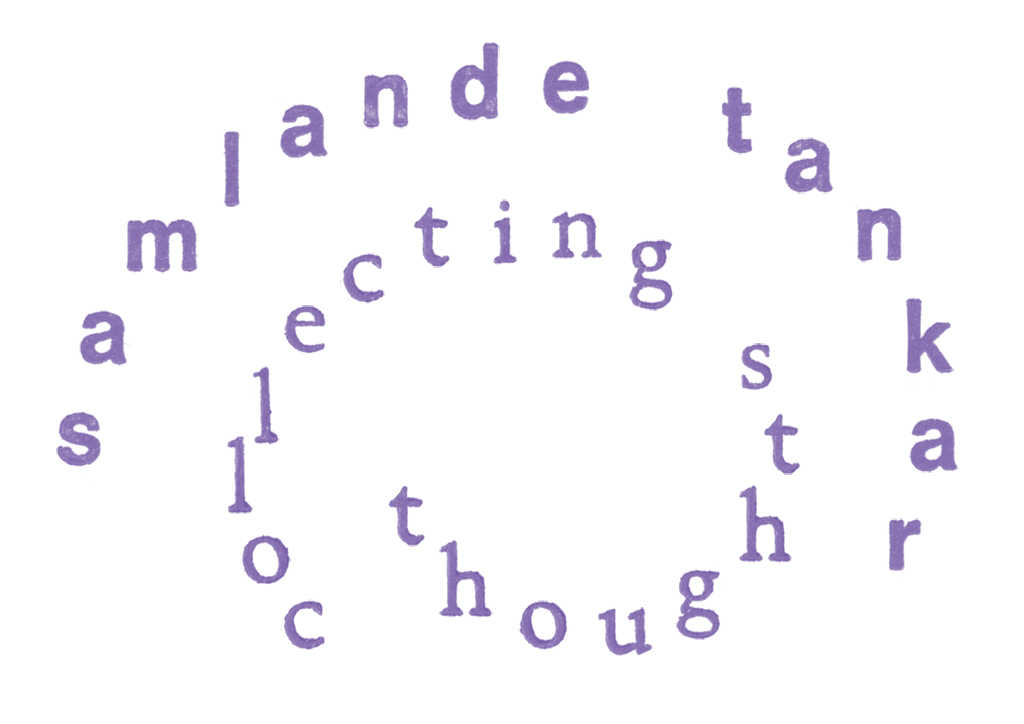
Slutseminarium
Välkommen till slutseminariet av det treåriga projektet Samlande tankar/Collecting Thoughts. I slutseminariet kommer projektets framtagna metoder att presenteras för en publik med möjlighet att vara del av en kritisk diskussion innan metoder fastställs.
Samlande tankar/Collecting Thoughts är ett treårigt projekt där Grafikens Hus har studerat samlandets och arkivområdets historia, samt vad det innebär att samla idag. Tillsammans med forskare, intendenter och konstnärer undersöks och formuleras en vision och metod för Grafikens Hus nya samling utifrån ett postkolonialt och intersektionellt perspektiv. Hur kan en samling bli en mötesplats för dialog och bidra till att tänka om vad samlingar och arkiv kan vara?
Ett av målet med Samlande tankar/Collecting är att ta fram en eller flera metoder för förvärv, samling och arkiv för Grafikens Hus arbete med att bygga upp en ny samling. Grafikens Hus är ett konstmuseum och en grafikverkstad grundad 1996 i Mariefred. Den 16 mars 2014 förstörde en tragisk brand allt i museets lokaler.
Samlande tankar/Collecting Thoughts avslutar det treåriga projektet med ett slutseminarium där publiken bjuds in att ta del av metoderna innan dessa fastställs för museet. Ett sätt för att öppna upp för transparens i arbetsprocessen och för att nå kollegor och intresserade av projektets arbete och tema.
Till seminariet kommer externa opponenter att granska metoderna. Även publiken bjuds in till att diskutera projektets framtagna metoder. De inbjudna opponenterna är Olivia Berkowicz, Maryam Fanni, René León-Rosales.
Datum: 27 november
Tid: 13.30-17.00
Plats: Etnografiska museet
För medverkan krävs registrering och bekräftelse på inbetald anmälningsavgift på 100 kr.
Fika från Matmekka dukas fram. Begränsat antal platser.
Sista anmälningsdatum 18 november.
Registrera dig HÄR.
Seminariet sker på svenska med översatt material till engelska.
The seminar will be held in Swedish with material translated to English.
Seminariet kommer att spelas in via ljudupptagning.
Program:
- 13.00. Dörrarna öppnar. Registrering.
- Michael Barrett, intendent, Afrika, Världskulturmuseerna, välkomnar publiken till Etnografiska.
- Introduktion av Nina Beckmann, museichef, Grafikens Hus.
- Presentation av residenskonstnärernas arbete under Samlande tankar/Collecting Thoughts: Johnny Chang, Afrang Nordlöf Malekian, Munish Wadhia.
- Presentation av projektet och de framtagna metoderna, Macarena Dusant, Processledare och curator för Samlande tankar/Collecting Thoughs.
- Opponering av projektets framtagna metoder.
- Summering av dagen, Michael Barrett, intendent, Afrika, Världskulturmuseerna, och Annika Gunnarsson, intendent teckning och grafik, Moderna Museet.
Presentation av residenskonstnärerna under seminariet:
Afrang Nordlöf Malekian: How to Print a Ghost
This presentation explores how to (g)host the archive—specifically, how to speak with and host the archive’s ghosts. Using different case studies, Afrang Nordlöf Malekian examines how we might blow life into archival ghosts while resisting the birth of new ones in the same breath. Nordlöf Malekian’s work engages closely with the unrealized leftist utopias and dreams of those who migrated to Sweden in the 1970s and ’80s, which through their lack of visibility, materialization and representation create a haunting repetition that revisits the society as a whole.
Munish Wadhia: Ornamentation and Crime
An image of a damasked gun or rifle, richly inlaid with gold, serves as the starting point for Munish Wadhia’s print production. The artefact, taken by a Swedish soldier during the 1857 Sepoy uprising—the First War of Independence—is found in the Museum of Ethnography’s collection. In the museum’s database he searched for “Kutch,” a region in India that is part of the artist’s broader ancestral heritage. In his talk, Wadhia shares his production process, examining how his material inquiry intersects with his ancestral memory and reflects on prints and artefacts in collections related to Swedish missionaries, colonial settlers, and military personnel.
Johnny Chang: Living With Images: Tactics for Gathering
What critical capacities and pedagogical tools are needed to live among our visual cultures and the multiple histories and relations they carry? In what ways can collections, archives, and libraries organise different forms of access to develop such capacities? Through visits and conversations with community and social movement archives, Living With Images brings together and reflects on tactics for gathering and organising access across contexts and conditions of struggle.
Bio opponenter:
Olivia Berkowicz är utställningsintendent på Röhsska museet för design och konsthantverk. I samband med Röhsska museets nya basutställning Designhistorier, har hon ingått i den curatoriella innehållsgruppen och arbetat med bland annat nyförvärv till samlingen och normkritiska perspektiv. Hon är medcurator av Tentative Transmits, en diskursiv ljudplattform i samarbete med Marianna Feher.
Maryam Fanni är grafisk formgivare och doktorand i Design på HDK-Valand, Göteborgs universitet. Hennes forskning rör sig i skärningspunkten mellan visuell kommunikation, urbana studier och minnesstudier. Hon är konstnärlig ledare för en pågående satsning på samtidsdokumentation på Hökarängsarkivet med finansiering från Riksantikvarieämbetet, samt sedan 2021 medlem i forskningsgruppen Aktion Arkiv som genom deltagande metoder insamlar och dokumenterar invånares erfarenheter av stadsbyggnads- och bostadspolitik i Sverige och Danmark.
René León-Rosales arbetar som forskare vid Mångkulturellt centrum i Botkyrka, Stockholm. Han är fil. dr i etnologi och affilierad till Socialt arbete vid Södertörns högskola. Hans forskning har haft fokus på hur klass, kön och etnicitet/ras villkorar identitetsformering och lärandeprocesser bland barn och ungdomar i segregerade urbana landskap med en speciell intresse i social- och normkritiskt pedagogik.
Tack till Etnografiska museet för värdskapet <3
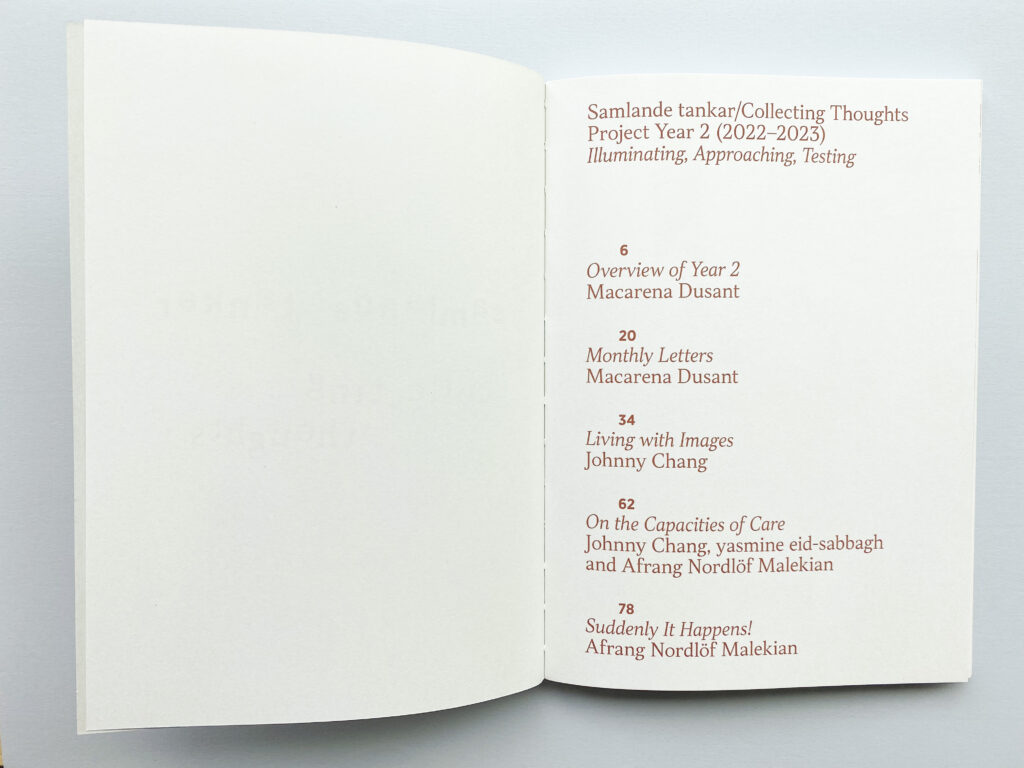
Publication Year 2
Samlande tankar/Collecting Thoughts
(2022-2023)
Illuminating, Approaching, Testing
The publication compiles the second year of the project and is based on works by artists-in-residence Johnny Chang and Afrang Nordlöf Malekian at Grafikens Hus, as well as yasmine eid-sabbagh’s work at the Arab Image Foundation. They explore, in various ways, “gatherings” as organizational events rather than acts of collecting. One question that the publication’s contributors address is the fact that a collection always risks marking the absence of something. Ghosts, as a concept to talk about how archives and collections exclude, reveal how these structures and systems write their own stories, where presence is marked/defined by absence.
The projects artist-in-residence, Afrang Nordlöf Malekian, publish his script to the performance Suddenly It Happens! that was part of his investigation av the history of the lottery and Public Art Agency Sweden’s collection of prints. The inspiration for this work comes from Grafikens Hus’collaboration with the state-owned lottery Penninglotteriet between 1995–1998, where 75 prints were commissioned to be reproduced in miniature for the scratch-off lottery.
A version of the script from the designer and artist-in-residence, Johnny Chang’s performance lecture Living with Images is also published in the book, reworked into a lyrical essay. Living with Images is a performance lecture that took place at Hägerstensåsens medborgarhus in collaboration with the curatorial project A Movement to Hold. The essay is filled with voices, quotes, reflections, references, phenomenological investigation, and music. It invites the reader on a poetic and political walk in dialogue with archives, people, and acrosstimes.
The two scripts provide an insight into the artistic process. The work of the artists-in-residence is part of the project’s proposals for methods of acquisition, collection, and archives within Samlande tankar/Collecting Thoughts.
This publication also includes an interview with artist yasmine eid-sabbagh by Johnny Chang and Afrang Nordlöf Malekian. eid-sabbagh works at the Arab Image Foundation—a non-profit organisationbased in Beirut with over 50,000 photos and documents in its collection. The objects are from or connected to the Middle East, North Africa, and the Arab diaspora. In the conversation with eid-sabbagh, names, categorisations, conditions for acquisition, and preservation are discussed, as well as what it means that a collection is absent but claims to exist.
–> Order the publication here.
Editor: Macarena Dusant
Contributors: Macarena Dusant, Johnny Chang, yasmine eid-sabbagh, Afrang Nordlöf Malekian
Design: Johnny Chang
Grafikens Hus, 2024
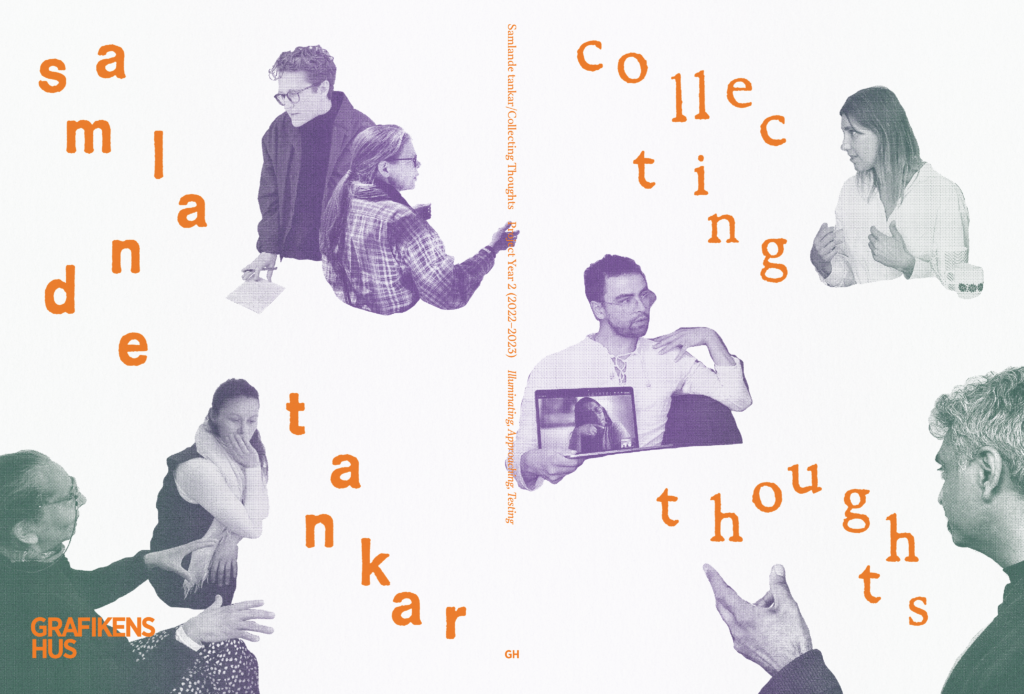
Design: Johnny Chang.
Book release: publication Year 2
The publication compiles the second year of the project and is based on works by artists-in-residence Johnny Chang and Afrang Nordlöf Malekian at Grafikens Hus, as well as yasmine eid-sabbagh’s work at the Arab Image Foundation. They explore, in various ways, “gatherings” as organizational events rather than acts of collecting. One question that the publication’s contributors address is the fact that a collection always risks marking the absence of something. Ghosts, as a concept to talk about how archives and collections exclude, reveal how these structures and systems write their own stories, where presence is marked/defined by absence.
During the release there will be a panel talk. The conversation will revolve around the conditions for acquisition and care in archives and collections, designations and categorizations, as well as the implications of a collection being absent while still claiming to exist. It will also raise the question of whether, and how, cultural organizations with archives and collections can form support systems in times of instability and crisis.
Participants include Afrang Nordlöf Malekian, Johnny Chang, yasmine eid-sabbagh, and Anneli Bäckman, with introduction by Magnus Ericson and moderation by Macarena Dusant.
The book release is a collaboration between Grafikens Hus and IASPIS, the Swedish Arts Grants Committee’s International Programme for Visual and Applied Arts.
- Date: Monday 16 september 2024
- Time: 17:30–19:30
- Place: IASPIS/Konstnärsnämnden + online
- Address: Maria Skolgata 83, Stockholm
- Language: English
- Free entrance, no registration needed
- Join online: https://us02web.zoom.us/j/84837370533
Welcome!
Anneli Bäckman is a curator based in Staare (Östersund), where she has recently joined Gaaltije Saemien Museume, a museum rooted in southern Saepmie. One of the research strands that she is currently exploring, is the relationship to various collections that reflect South Saami history, as the museum has no collection of its own. Since 2012, she has been working as a curator at Botkyrka konsthall.
Johnny Chang is an interdisciplinary and interdependent designer, artist, and researcher based in Stockholm. His practice is interested in discursive processes of sense making (and breaking)—or poetics—of visual and material culture in relation to social-historical conditions. Chang’s artistic research attends to questions of care, access, and tactics for gathering, listening to and centering knowledges that emerge from diaspora liminality, community histories, and social movement archives.
yasmine eid-sabbagh is an artist and researcher. Her practice focuses on exploring potentials of human agency by engaging in experimental, collective work processes departing from photography. These include (counter-)archiving practices such as the negotiation around a potential digital archive (re)assembled in collaboration with inhabitants of Burj al-Shamali, a Palestinian refugee camp near Tyr, Lebanon. She is a member of the Arab Image Foundation, a practitioner-led archival institution.
Afrang Nordlöf Malekian is an artist working with history’s unnoticed creators and puts history into use as a form of documentation and aspiration that calls for improbable and impossible futurities. His work examines how narratives and hierarchies disappear, return, and transform in the most unexpected ways. As an artist he has exhibited at various venues and has also curated exhibitions and programs as part of the nomadic film and culture project, noncitizen.
*
Macarena Dusant is curator and process leader for the project Samlande tankar/Collecting Thoughts at Grafikens Hus, and editor of the publication. Magnus Ericson is Head of Applied Arts at IASPIS, leading the programme in design, crafts, architecture, spatial and urban practice.
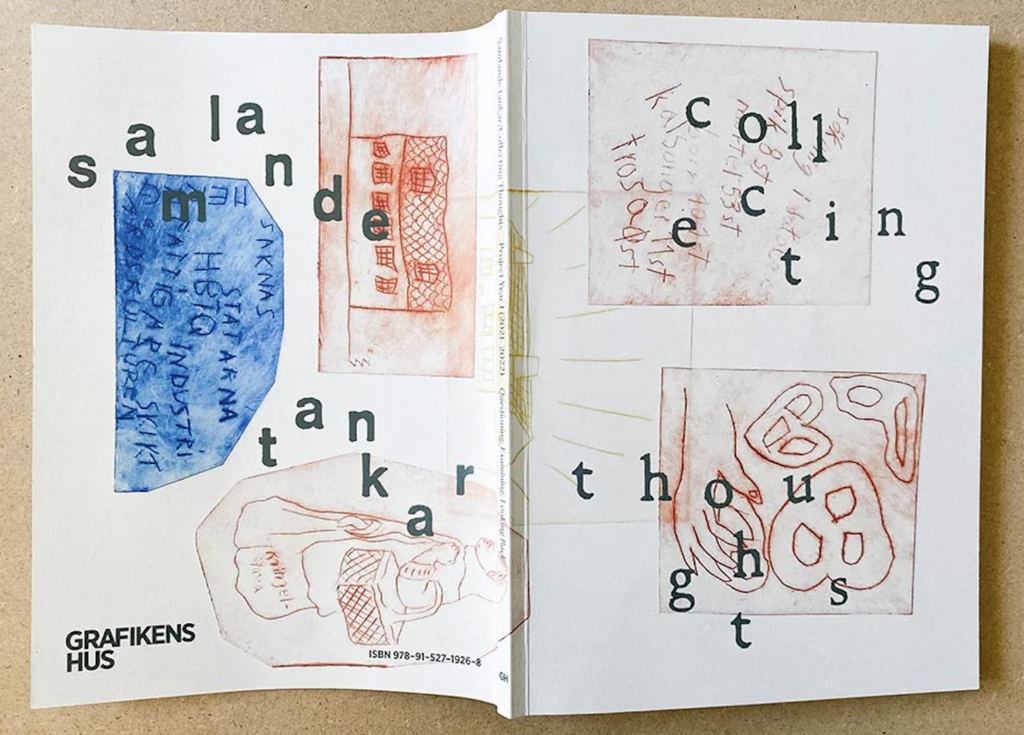
Interview with Mmabatho Thobejane – Publication Year 1
By Nilo Amlashi
Mmabatho Thobejane was the process leader and curator for the first year of Samlande tankar/Collecting Thoughts. She is also the editor of the publication that summarizes the first year of the project with presentations by Artists in Residency Afrang Nordlöf Malekian, a conversation between Artists in Residency Munish Wadhia and Art Historian Åsa Bharathi Larsson, and the Monthly Letters which Mmabatho published during the project year. Guest curator at Grafikens Hus, Nilo Amlashi, met Mmabatho for a recap of the project.
Nilo Amlashi: As the process leader and curator of the first out of the three-years planned for Samlande tankar/Collecting Thoughts could you tell us a bit about your experience?
Mmabatho Thobejane: For the first year, a big part of my job was kind of setting the ground for the next three years. And that meant meeting the participants and people who would be a big part of the project, such as the expert council, and in a way trying to get to know them individually, their professions and their interests in the project. And it was exciting to see how everyone was really interested in the opportunity of rethinking collecting and collections.
I also worked closely with the Artists in Residency, Afrang Nordlöf Malekian and Munish Wadhia. Working with their different contributions to the project was very interesting, as well. Afrang looked at Grafikens Hus’ archive of Penninglotteriet, and Munish looked at the history of printmaking, and its ties to nation building connected to racism and capitalism. It made me understand what printmaking can be and has been as a tool. It was so great to be amongst great thinkers who are interested in rethinking the world and actioning that out. I worked closely with Johnny Chang, who designed the visual identity for Samlande tankar/Collecting Thoughts, and also was the graphic designer for the year one publication. It was great to work with people who believed in the process as an end in itself. That gave so much to the project.
Nilo Amlashi: In just a few sentences, name some of your biggest takeaways from working with this project?
Mmabatho Thobejane: I think the biggest one, was the idea that we can rethink what we think is set in stone. And that together with others, we can also action that rethinking. It was very interesting to be in that kind of space, which I think Samlande tankar/Collecting Thought is, with the participants of the project.
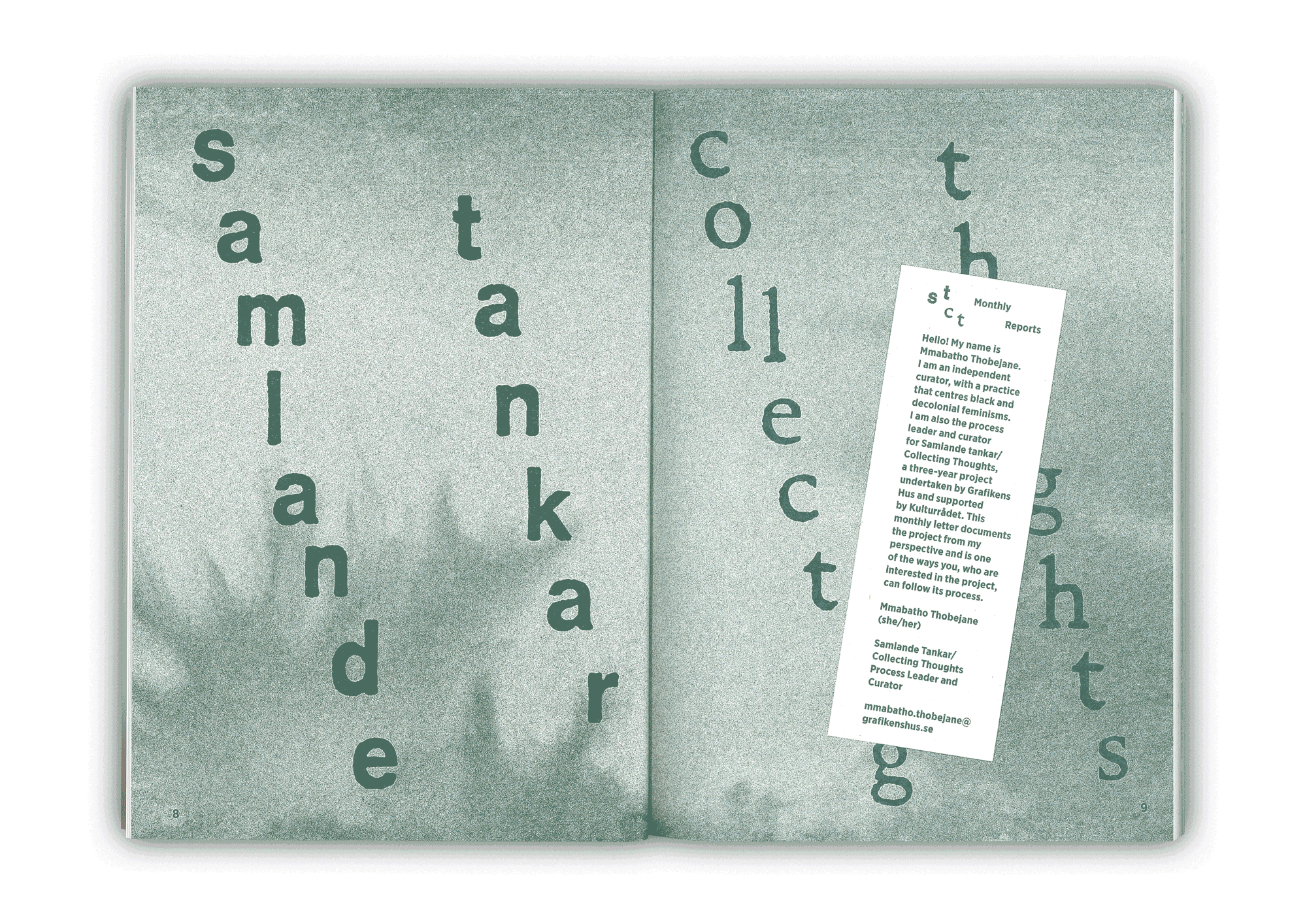
Samlande tankar/Collecting Thoughts
Project Year 1 (2021-2022)
Questioning, Investigating, Looking Back
Editor: Mmabatho Thobejane
Design: Johnny Chang
Grafikens Hus, 2022
For more info about the publication, visit the Konstshop here.
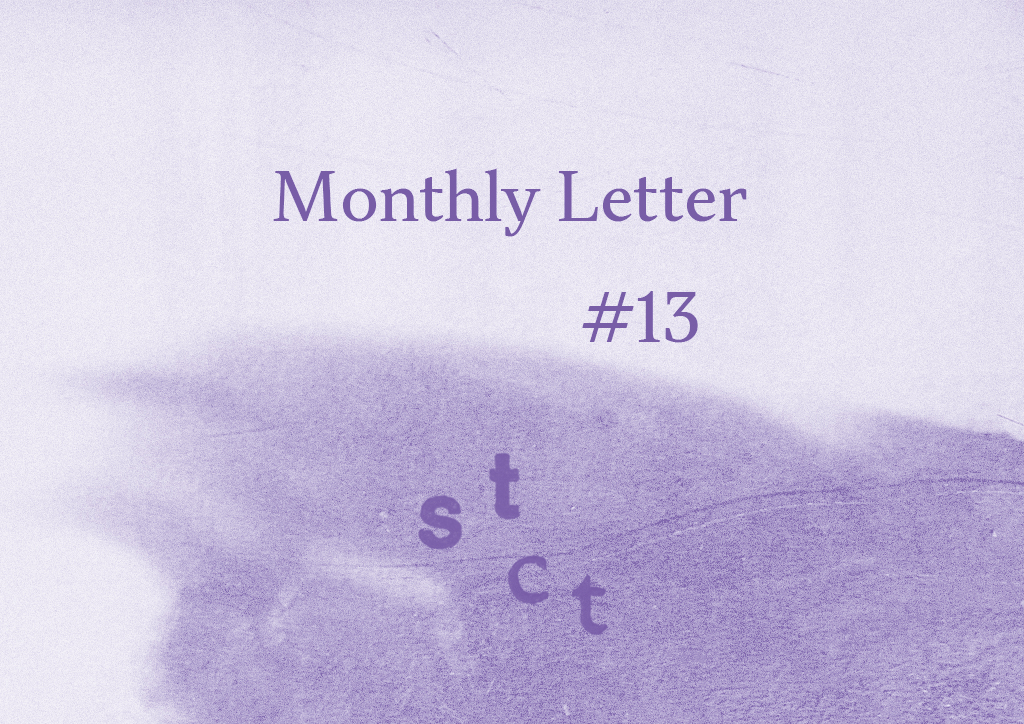
”I conducted a workshop exploring policy documents as political spaces. I split the expert council into three groups and tasked them each with reading a policy on collection and acquisition. The workshop participants found that collections serve as foundations for the museums, and that new works are acquired to “complement” the existing collection. Artist in Residence Munish Wadhia commented, “Instead of re-writing history, maybe re-imagine history?” For Grafikens Hus, currently looking ahead at building a collection, the question arises of how such a foundation can be created?”
Read the Monthly Letter #13 by process leader and curator Macarena Dusant here.
Samlande tankar / Collecting Thoughts is a project by Grafikens Hus with support from the Swedish Arts Council.
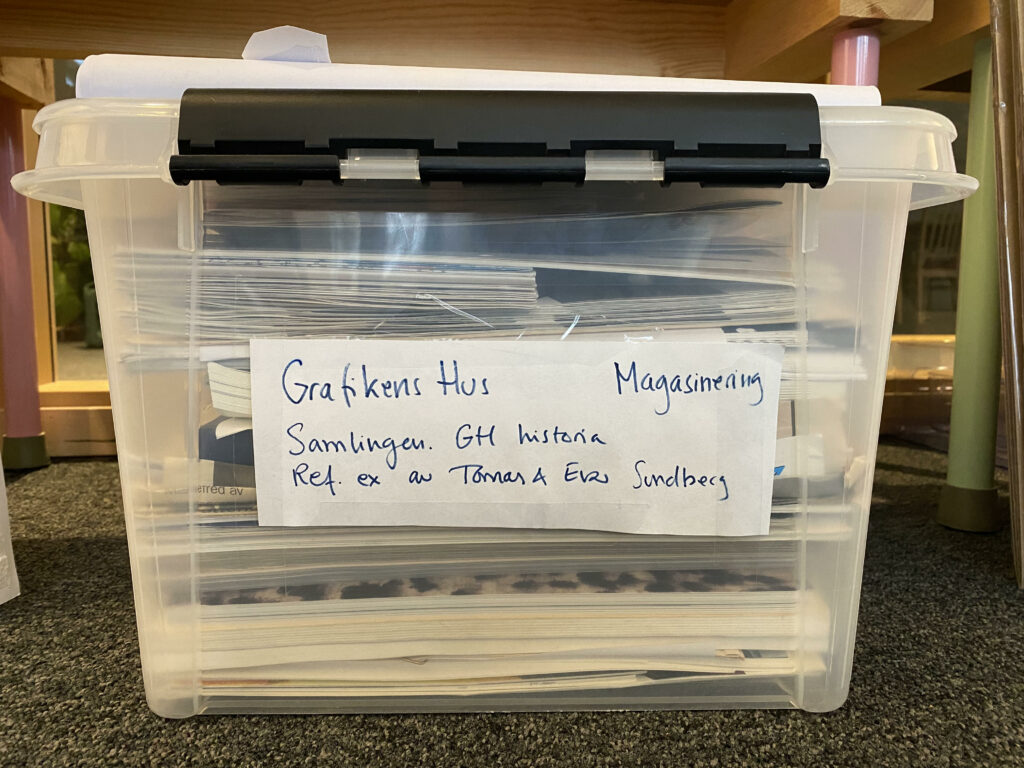
Vilken roll har grafiken spelat för kvinnor genom historien? Vad händer när ett museum brinner ner och förlorar både sin byggnad och samling? Följ med på en digital arkivvisning av Grafikens Hus och lär dig mer om grafikens betydelse och historia utifrån ett kvinnohistoriskt perspektiv.
En av Samlande tankar/Collecting Thoughs’ samarbetspart, Stockholms Kvinnohistoriska, genomförde en digital kvinnohistorisk visning av Grafikens Hus – i konstnären och tryckaren Jenny Olssons ateljé Tellus grafik som ligger i Hägersten, Stockholm.
I visningen hör vi Nina Beckmann, museichef på Grafikens Hus berätta om åren efter branden, kvinnors roll inom den grafiska konstformen och arbetet bakom en ny samling. Vi får också lära oss mer om olika trycktekniker och hur grafik använts för att påverka samhället, när Jenny Olsson visar oss runt i ateljén.
Visningen är ett samarbete mellan Stockholms Kvinnohistoriska och Grafikens Hus inom ramen för projektet Samlande tankar/Collecting Thoughts. Sidekick under visningen är Macarena Dusant, curator och processledare för Samlande tankar/Collecting Thoughts.
⚠️ Notering: Ett namn är felstavat i visningen, tid 09.45. Det ska vara Lina Nordenström.
Filmning och klippning: Palmer Lydebrant.
OM KVINNOHISTORISK VISNING AV: I “Kvinnohistorisk visning av” besöker Stockholms Kvinnohistoriska museer och mytomspunna institutioner och platser på jakt efter dolda historier om kvinnor. Tillsammans med publiken ställer vi frågor om kvinnors liv, möjligheter och förutsättningar till historiker, guider och experter.
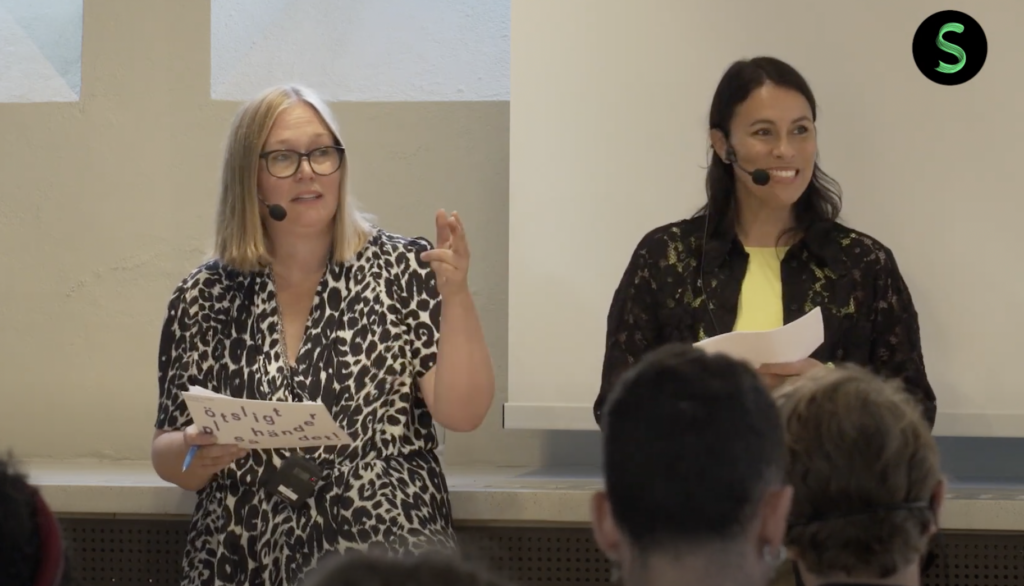
What is the state of printmaking today?
A conversation about printmaking at Public Art Agency Sweden, September 5th at 5 pm
Printmaking is an art form loved by many and rejected by others in the Swedish art field. For its collective and democratic aspects there is a potential for prints taking an important place in contemporary art. In a conversation at the Public Art Agency Swedish artists and experts from different generations will talk about the matter during the opening of artist Afrang Nordllöf Malekian’s opening of the exhibition Suddenly it Happens!
Participants: Annika Gunnarsson, curator Drawings and Prints, Moderna museet and part of the expert council for Samlande tankar/Collecting Thoughts; Afrang Nordlöf Malekian, artist in residence at Samlande tankar/Collecting Thoughts; Kayo Mpoyi, artist; Henrik Orrje, director collection and administration, Public Art Agency Sweden; and Ulla Wennberg, artist.
The talk will be moderated by Macarena Dusant, process leader and curator for Samlande tankar/Collecting Thoughts, Grafikens Hus and Annika Engqvist, curator, Public Art Agency Sweden.
The talk is held in Swedish.
Long-term collaboration between the Public Art Agency Sweden and Grafikens Hus
The Public Art Agency Sweden hosts a large collection of graphics from 1960-1990. These were previously on display in schools, workplaces and public offices, making them accessible to hundreds of thousands of people through everyday interactions.
Grafikens Hus and the Public Art Agency Sweden have initiated a long-term collaboration within the framework of the project Samlande tankar/Collecting Thoughts. The collaboration’s point of departure is the Art Agency’s graphic collection. Grafikens Hus lost its entire graphics collection in a fire in 2014. Since then, the museum has been working on building a new art collection. The process has raised questions about what kind of art is selected for a collection and what stories these works tell. Which stories are heard and which are excluded? In the Public Art Agency’s collection there are many duplicates of graphic works of art which are now transferred to Grafikens Hus. In this way, the artworks can be viewed by more people through exhibitions, mediation and research projects.
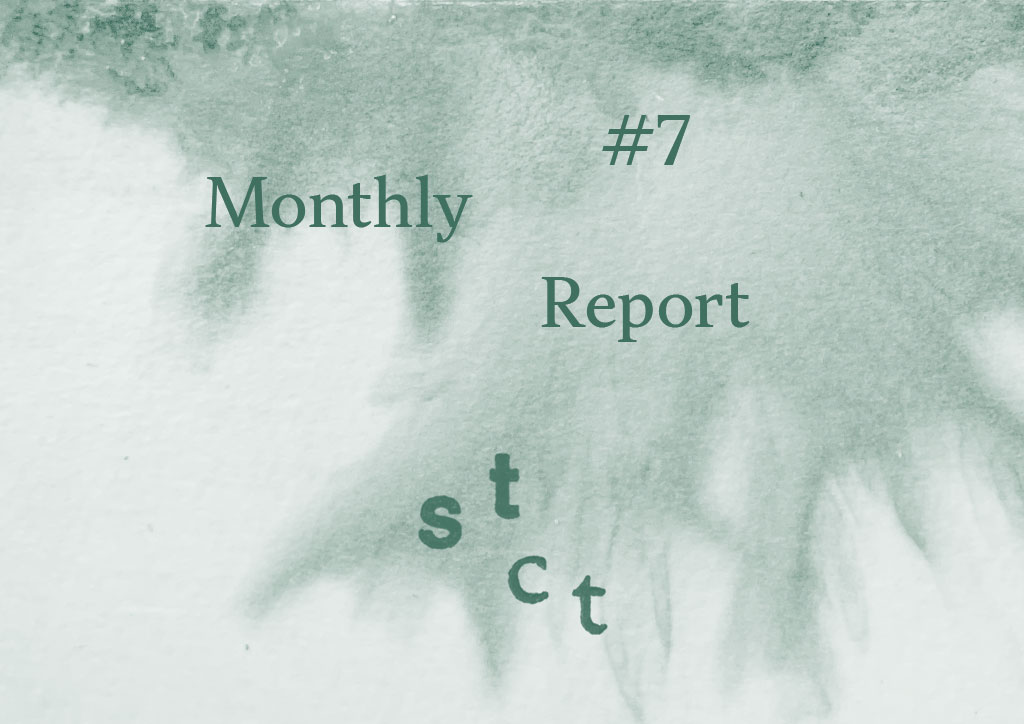
Hello! My name is Mmabatho Thobejane. I am an independent curator, with a practice that centres black and decolonial feminisms. I am also the process leader and curator for Samlande tankar/Collecting Thoughts, a three-year project undertaken by Grafikens Hus and supported by Kulturrådet. This monthly letter documents the project from my perspective and is one of the ways you, who are interested in the project, can follow its process.
July 2022
Read Monthly Report #7 here.
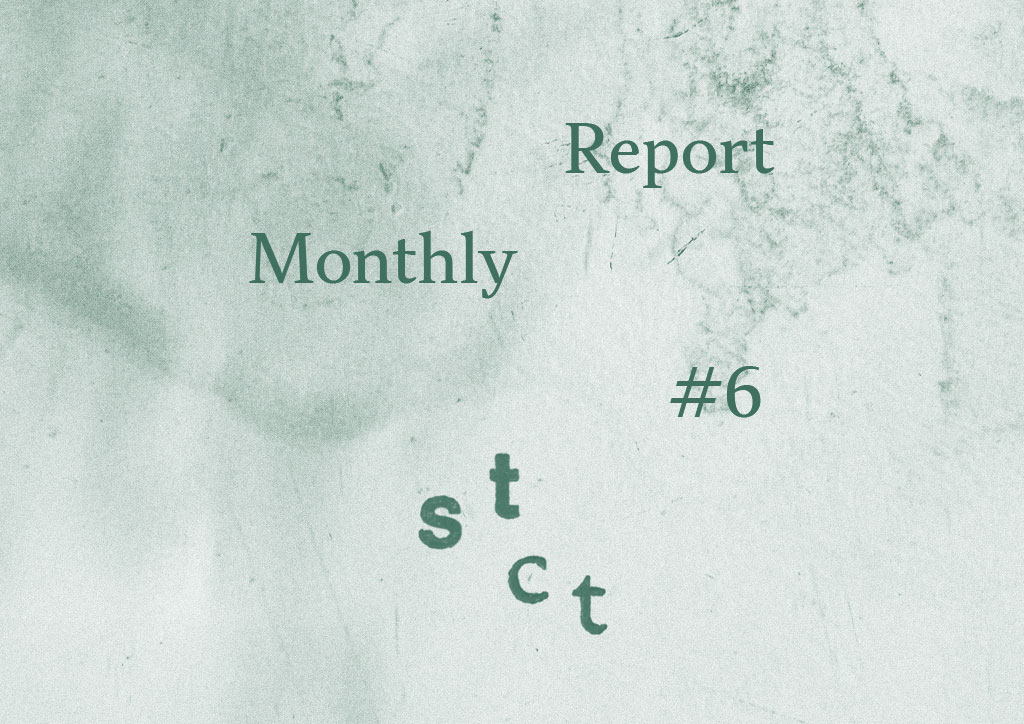
Hello! My name is Mmabatho Thobejane. I am an independent curator, with a practice that centres black and decolonial feminisms. I am also the process leader and curator for Samlande tankar/Collecting Thoughts, a three-year project undertaken by Grafikens Hus and supported by Kulturrådet. This monthly letter documents the project from my perspective and is one of the ways you, who are interested in the project, can follow its process.
June 2022
Read Monthly Report #6 here.